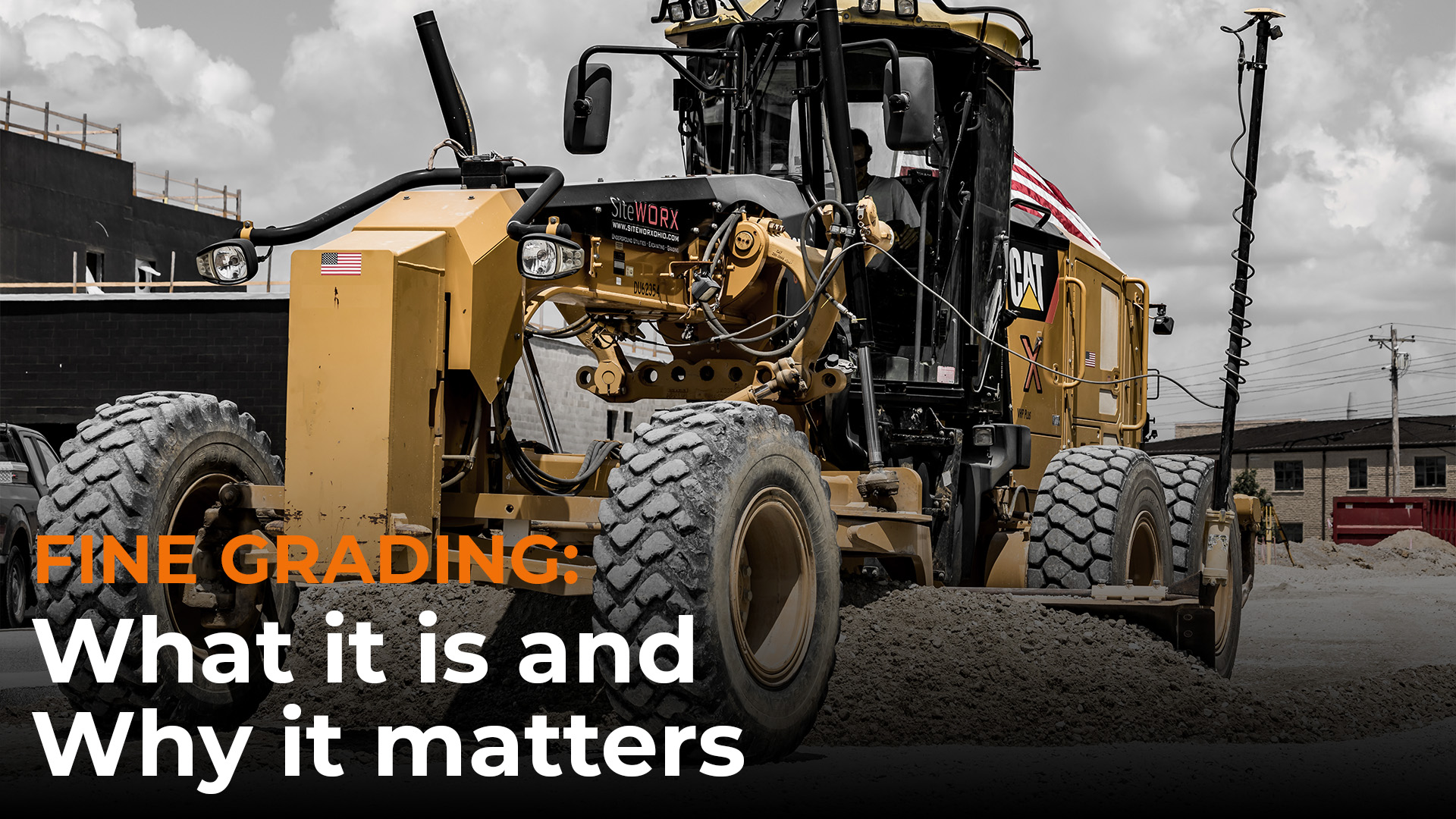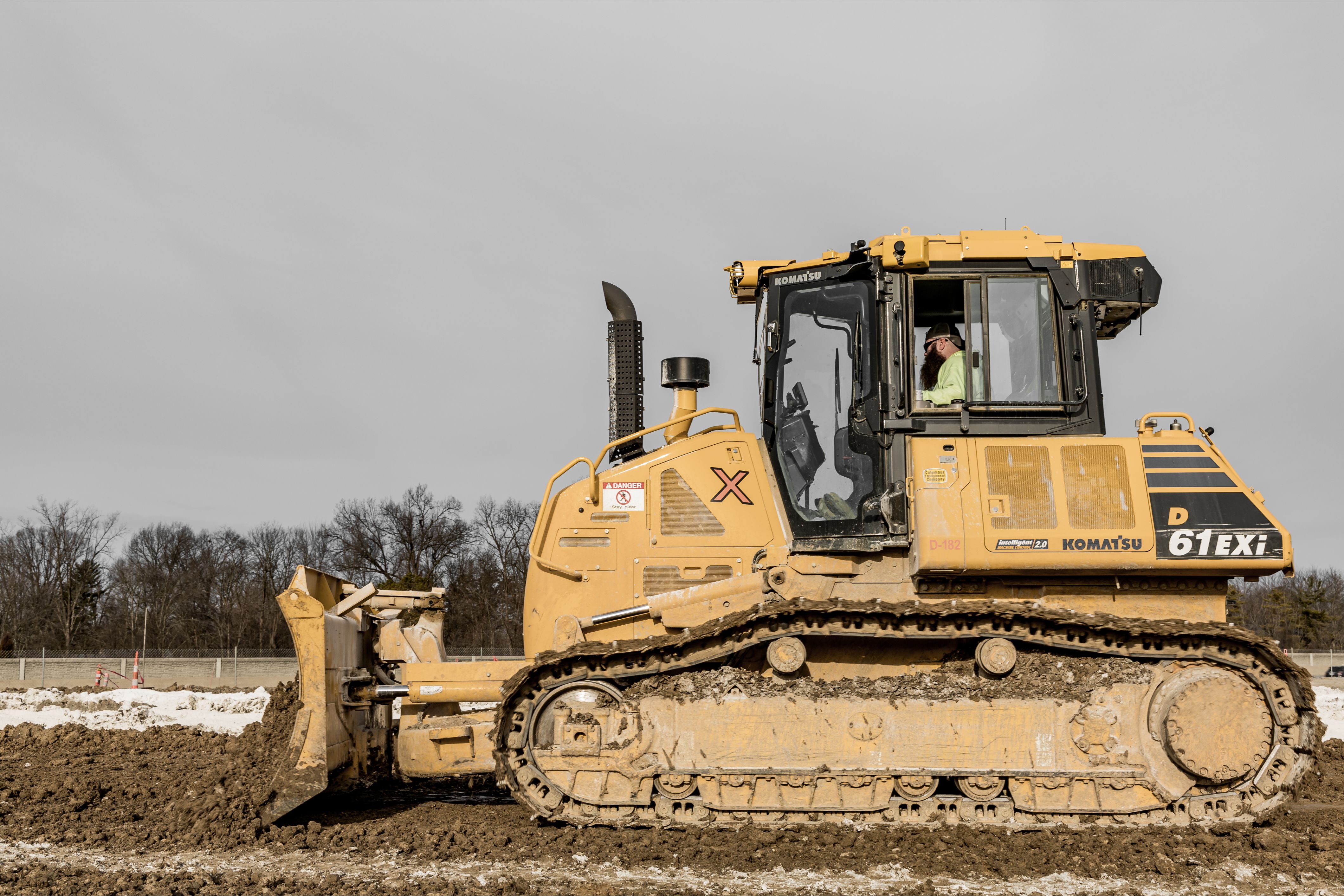Fine Grading: What It Is and Why It Matters
Fine Grading: What It Is and Why It Matters

We’ve been there: walking down the sidewalk and accidentally tripping over a raised slab. Or driving down the road, wondering if you have a flat tire or if the road is so bumpy that if the tire isn’t flat, it will be, soon. But one of the reasons that might be behind these bumps and holes –the lack of proper fine grading – can reach even further than paths and roads to building foundations and other major construction projects.
Whether you’re constructing a new building, preparing a site for development, or setting a foundation, understanding fine grading – and how it’s done right – keeps you on the smooth path toward success.
Today we’ll talk about the importance of fine grading for different construction projects, how it’ll protect your project, how to do it the right way, and how SiteWORX can help.
What is fine grading?
Fine grading, sometimes referred to as “finish” or “final” grading, is a critical step toward high-quality, long-lasting construction projects.
Fine grading is the process of precisely shaping and leveling the ground surface or a base material to ensure it meets the project's specific requirements. This is typically done after rough grading, which involves the first shaping of the site. Fine grading involves more detailed work than rough grading, focusing on creating the desired slopes, elevations, and smoothness of the surface with the proper base materials for the project.
.jpg)
How can fine grading protect my project?
Because fine grading ensures that your project is stable, level, and functional, it can be a vital step toward protecting the structural integrity of your construction project. Here’s why:
-
Foundation Stability: Fine grading ensures that the base surface is level and consistent, providing stability to the foundation of the project. An uneven base can lead to settlement issues, cracks, or even structural failure over time.
-
Drainage: Proper fine grading makes sure that water flows away from the project and does not pool in undesirable areas. Poor drainage can cause erosion, water damage, and other costly issues.
-
Surface Smoothness: For projects like roadways, sidewalks, or floors, the smoothness of the surface directly impacts the final finish. Fine grading is essential to achieve the necessary smoothness and evenness, providing a quality finish that lasts.
-
Accuracy: Fine grading is necessary to meet the precise elevations and slopes required by the project design. This accuracy is crucial in ensuring that the final product is functional and beautiful.
Fine Grading Best Practices
Making sure your fine grading is done correctly means that you should consider more than just moving rocks out of the way or tamping down sand. Here are some of the best practices we recommend using during this process:
-
Use the Right Equipment: Fine grading often requires specialized equipment, such as laser-guided graders, skid steers with grading attachments, or hand tools for smaller areas. The choice of equipment should match the project's scale and precision requirements.
-
Conduct a Pre-Grading Survey: Before starting fine grading for a larger project, conduct a detailed survey to understand the site’s topography and establish accurate benchmarks. This helps in setting the correct elevations and slopes.
-
Control Moisture Content: The moisture content of the soil or base material is crucial during fine grading. Too dry, and the material may not compact properly; too wet, and it may become unstable. It’s important to maintain the right moisture levels for optimal compaction and stability.
-
Layered Approach: If working with multiple layers of material (e.g., sub-base, base, and topsoil), each layer should be graded and compacted separately. This ensures uniformity and stability throughout the different layers.
-
Check Grades Regularly: During the grading process, regularly check the grades using tools like laser levels, GPS systems, or traditional surveying instruments. This helps ensure that the work is on track and meets the required specifications.
-
Allow for Settling: After grading, allow the graded material to settle if possible, and make final adjustments as needed. This helps in achieving a stable and precise finish.
-
Collaborate with Other Teams: Fine grading typically occurs before other tasks at construction sites like paving or landscaping. Working closely with other teams helps ensure that the grading process is in sync with the project's overall schedule and requirements.

Fine Grading with SiteWORX
At SiteWORX, we offer a full range of site construction and management services, including fine grading. Our expertise and dedication to comprehensive site development ensures that every project we undertake is executed with precision, efficiency, and the highest standards of quality.
Our team will work closely with you throughout the fine grading process to ensure that all your specific needs are met, from achieving precise elevations to preparing the site for later construction activities. We understand that fine grading is a critical step in laying the groundwork for the success of your project, so we collaborate closely with other teams to guarantee that the grading process aligns perfectly with the overall project timeline and requirements. We adhere strictly to industry regulations and best practices and will make sure that your grading meets the highest standards of quality and accuracy.
Choose SiteWORX for your fine grading needs and experience the SiteWORX difference!
Contact us today to make sure that your project avoids those “bumps in the road.”
Happy with the SiteWORX difference? Leave us a five-star review here!
If you are interested in joining the SiteWORX team, click here to browse our job opportunities today!
Construction workers: follow SiteWORX on Facebook, Instagram, and LinkedIn for more tips.
